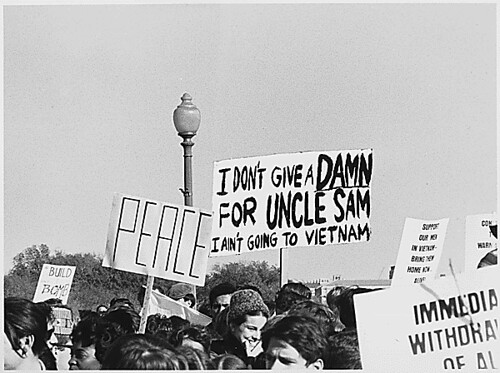Reflection #5
Section A01
Reading: "From Saigon to Baghdad"
"Hey, hey, LBJ, how many kids did you kill today?" This was a chant I remember when learning about the Vietnam War, and it embodies the anti-war sentiment of the Vietnam War during that time period. In Andrew Priest's article on the impact of the Vietnam War, Marilyn Young wrote that "Vietnam is the great Satan of the late twentieth-century American history." Beyond the fact that the war was considered the first defeat in our military history, changing the political and military institutions in our country, the Vietnam War was even more significant because it changed how Americans perceived ourselves as and our relationship with government. During WWI and WWII, there was a sense of patriotism and bravery that was tied to the uniform, but the lack of moral legitimacy, accompanied with reports of soldiers killing innocent civilians and dropping bombs on villages, changed the war into a murderous, senseless, and violent action. America had become the self-righteous bully that justified his actions with American Exceptionalism. For the first time, the Vietnam War created a great internal battle between the public and the government.
Priest's article also deals with the ties between the Vietnam War more than 60 years ago, and the Iraq War. There are many parallels between the two wars. Despite the "Vietnam Syndrome" cautiousness of foreign policy post-Vietnam War, many still regard American as a self-righteous bully hurting a smaller country. Before it was Vietnam. Now, it is Iraq. However, if there are so many parallelisms between the two conflicts, why isn't there a major Anti-Iraq protest movement today like there was during the Vietnam War? What makes these two conflicts so different in terms of the level of public protest?

No comments:
Post a Comment